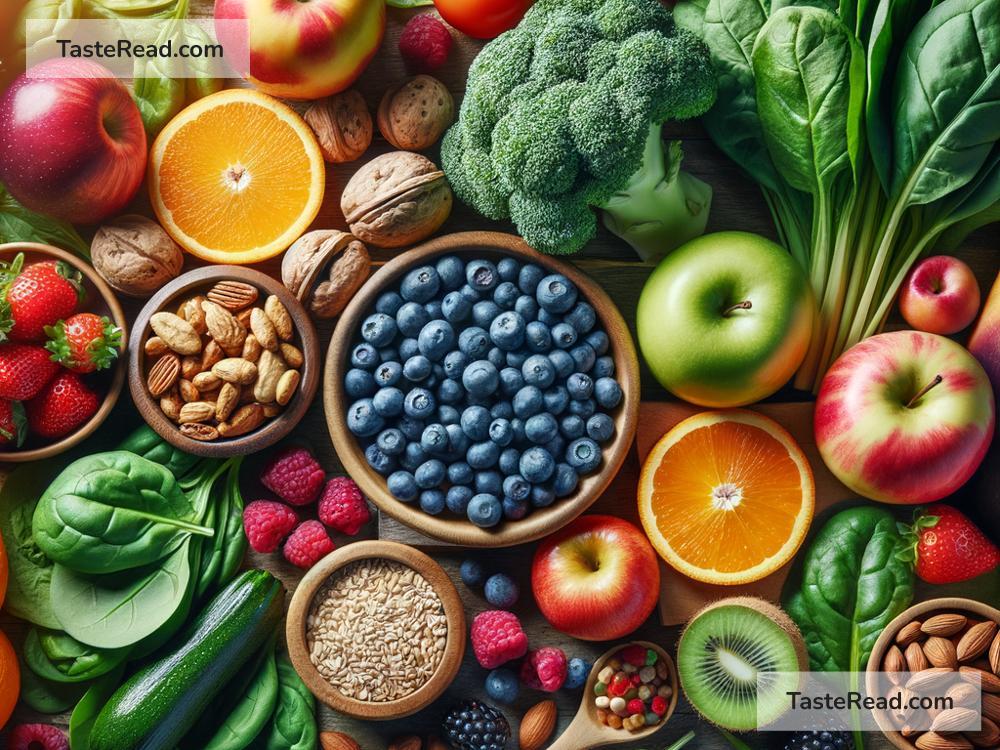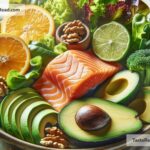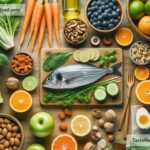Foods That Protect Against COPD: Breathing Better With a Healthy Diet
Chronic Obstructive Pulmonary Disease (COPD) is a condition that affects millions of people worldwide. It’s a disease that makes it hard to breathe due to damage in the lungs. Smoking is the biggest cause of COPD, but pollution and family history can also increase your risk. Sadly, COPD doesn’t have a cure. However, you can take steps to slow its progress and feel better—one of them is eating the right foods.
A healthy diet is important for everyone, but it’s especially important for people with COPD. Why? Because the right foods can reduce inflammation, strengthen your immune system, and give you energy to breathe better. Let’s explore some of the best foods that may help protect against COPD and support lung health.
1. Fruits and Vegetables: Nature’s Medicine
Fruits and vegetables are packed with vitamins, minerals, and antioxidants that fight inflammation and protect lung cells. Antioxidants are nutrients that combat harmful substances (called free radicals) which damage cells in your body.
Some of the best choices for lung health include:
– Oranges and Citrus Fruits: Rich in vitamin C, which boosts your immune system and reduces lung inflammation.
– Leafy Greens: Spinach, kale, and Swiss chard contain magnesium, a mineral that helps relax your airways and improves breathing.
– Tomatoes: High in lycopene, which can reduce inflammation in the lungs.
– Apples and Pears: Studies have shown that eating apples regularly may lower your risk of COPD because they contain antioxidants like quercetin.
Try to eat a colorful variety of fruits and veggies every day. The brighter and more diverse your plate, the more nutrients your body will get to protect your lungs.
2. Whole Grains: Energy for Your Body
Breathing takes effort, especially for people with COPD. Sometimes, COPD patients feel tired because it takes extra energy to get oxygen into their bodies. Whole grains like brown rice, oatmeal, and quinoa give you long-lasting energy while supporting overall health.
Whole grains are high in fiber, which helps your digestive system work smoothly. Plus, they contain nutrients like B vitamins and iron that can help your body use oxygen more efficiently. Avoid refined grains like white bread or processed cereals; they don’t have the same nutritional benefits.
3. Healthy Fats: Protecting Your Lungs
Not all fats are bad. Healthy fats, such as those found in nuts, seeds, avocados, and olive oil, can reduce inflammation in the body and keep your lungs working better.
Omega-3 fatty acids are especially beneficial for COPD patients. These fats are found in fatty fish like salmon, mackerel, and sardines, as well as walnuts and flaxseeds. Omega-3s may help reduce inflammation in the lungs and improve lung function over time. Try to include fatty fish in your meals at least twice a week.
4. Protein-Rich Foods: Building Strength
Protein is important for keeping your muscles strong, including the muscles you use to breathe. COPD patients often lose weight and muscle strength as the disease progresses, so eating enough protein can help you stay healthy.
Some good sources of protein include:
– Lean meats like chicken and turkey
– Eggs
– Beans and lentils
– Greek yogurt
– Tofu
Make sure to choose healthy protein sources that are low in saturated fat to avoid extra strain on your heart and lungs.
5. Dairy in Moderation
Dairy products like milk and cheese provide calcium and protein, which are essential for your overall health. But they can also thicken mucus in some people, which may make it harder to breathe. If dairy affects your lungs negatively, consider switching to plant-based alternatives like almond milk, soy yogurt, or oat milk.
6. Hydration: Drink Water for Clear Airways
Staying hydrated is crucial for COPD sufferers. Water helps thin mucus in your lungs, making it easier to breathe. Aim for plenty of water throughout the day, but avoid sugary drinks like soda and heavily caffeinated drinks, which can dehydrate your body.
Herbal teas, like ginger or peppermint tea, can be a comforting and hydrating choice, especially when you need something warm.
7. Foods Rich in Vitamin D: Supporting Lung Function
Vitamin D plays an important role in strengthening your immune system and protecting your lungs. COPD patients are often deficient in this vitamin, so it may be helpful to include foods like:
– Egg yolks
– Fatty fish (such as salmon and tuna)
– Fortified products like cereals and plant-based milk
You can also get vitamin D from sunlight. Spending a few minutes outside each day can help boost your levels naturally.
Final Tips: Avoid Trigger Foods
While many foods can protect your lungs, there are certain foods to limit or avoid. For example:
– Fried and greasy foods can make breathing harder and cause bloating.
– Salty snacks can cause fluid retention, putting extra pressure on your lungs.
– Processed foods often contain preservatives that may irritate your airways.
Breathe Easier With Better Food Choices
While food isn’t a magic cure for COPD, eating the right diet can make a big difference in how you feel and how your lungs function. A nutrient-rich diet filled with fruits, vegetables, healthy fats, lean proteins, and whole grains can reduce inflammation, improve your energy, and protect your lungs from further damage.
If you or someone you love is living with COPD, start small. Swap processed snacks for fresh fruit and veggies, drink more water, and incorporate foods like salmon and spinach into your meals. Little changes can lead to big improvements over time when it comes to breathing better and living well.
Keep your body nourished, and breathe easy—you deserve it!


